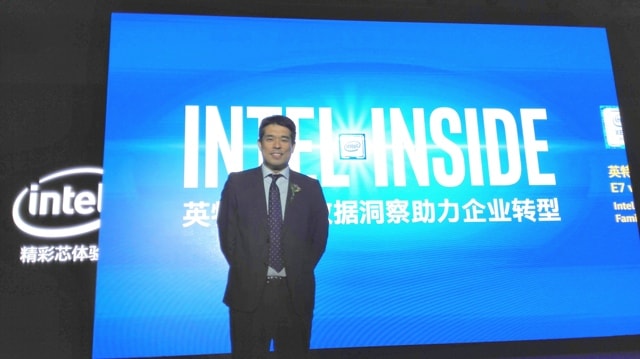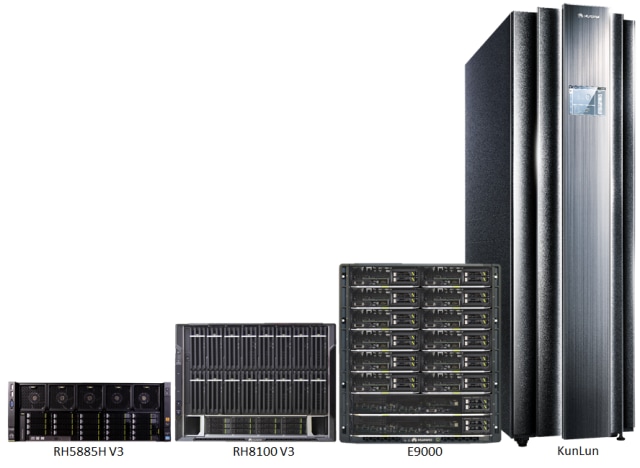Huawei Mission Critical Servers Accelerate Services with Intel® Xeon® E7 v4 Processors
Huawei was invited to the global launch of the Intel® Xeon® E7 v4 processor family. At the launch event, Huawei unveiled its new line of mission critical servers that deliver higher computing power with the Intel® Xeon® E7 v4 processors. Huawei has made continuous, innovative advances with mission critical servers, providing customers reliable, high performance products.

Wang Zhen, General Manager of the Huawei mission critical server domain, attending the launch event
"Huawei has been closely partnering with Intel and was the first to launch a new line of mission critical servers running on the E7 v4 series processors. We've been helping our customers stay at the cutting edge with our leading technologies. We help them build a stable, efficient environment for running mission critical services," said Wang Zhen, General Manager of Huawei's mission critical server domain. "Building on our R&D strength in the mission critical server sector, we have upgraded our mission critical servers to Intel's new platform, meanwhile breaking 8 global SPEC performance test records. The KunLun 9032 is a perfect example. Officially launched as the world's first 32-socket mission critical server at CeBIT 2016 in March, it has seen massive deployment to major customers of key vertical industries, such as energy, finance and other large corporations. It provides them with a more powerful computing platform for mission critical applications, including online transaction processing (OLTP) database, HANA, and virtualization."

Huawei mission critical server product family
The upgrade to the Intel® Xeon® E7 v4 processors empowers Huawei mission critical servers with CPUs that support the 14-nanometer manufacturing processing technique, up to 24 cores and 60 MB L3 cache per CPU, 30% larger than that of the previous generation of CPUs. The new-generation CPUs deliver 27% higher performance than their predecessors. In addition to the upgrade to the new CPU platform, Huawei's enhanced mission critical server line-up offers many new features, including:
- NVMe solid state disks (SSDs) for high-speed cache and block data read/write, driving up storage performance.
- Support for the trusted cryptography module (TCM, or TPM, the trusted platform module) encryption interfaces. Users can now flexibly configure TCM encryption modules to secure their mission critical applications.
- Support for out-of-band management of RAIDs. Users can flexibly query and set RAID configuration information and status to precisely manage and configure hard disks. RAID information can be configured online, making RAID management more convenient.
- Support for fault diagnosis & management 2.0 (FDM2.0), which enables real-time intelligent fault diagnostics hardware fault location precision, dramatically improving product reliability.
In May 2016, Huawei servers moved to the Challengers Quadrant by Gartner. Huawei servers have been serving over 5000 customers across more than 150 countries globally. According to Gartner, Huawei mission critical servers achieved #1 global shipment growth rate in 2015. Delivering benchmark performance, reliability, and maintainability, Huawei mission critical servers have been widely adopted for mission critical services such as enterprise resource planning (ERP), customer relationship management (CRM), and data analytics by customers across various industries, including government, finance, enterprises, energy, communication, and carriers.




No comments: